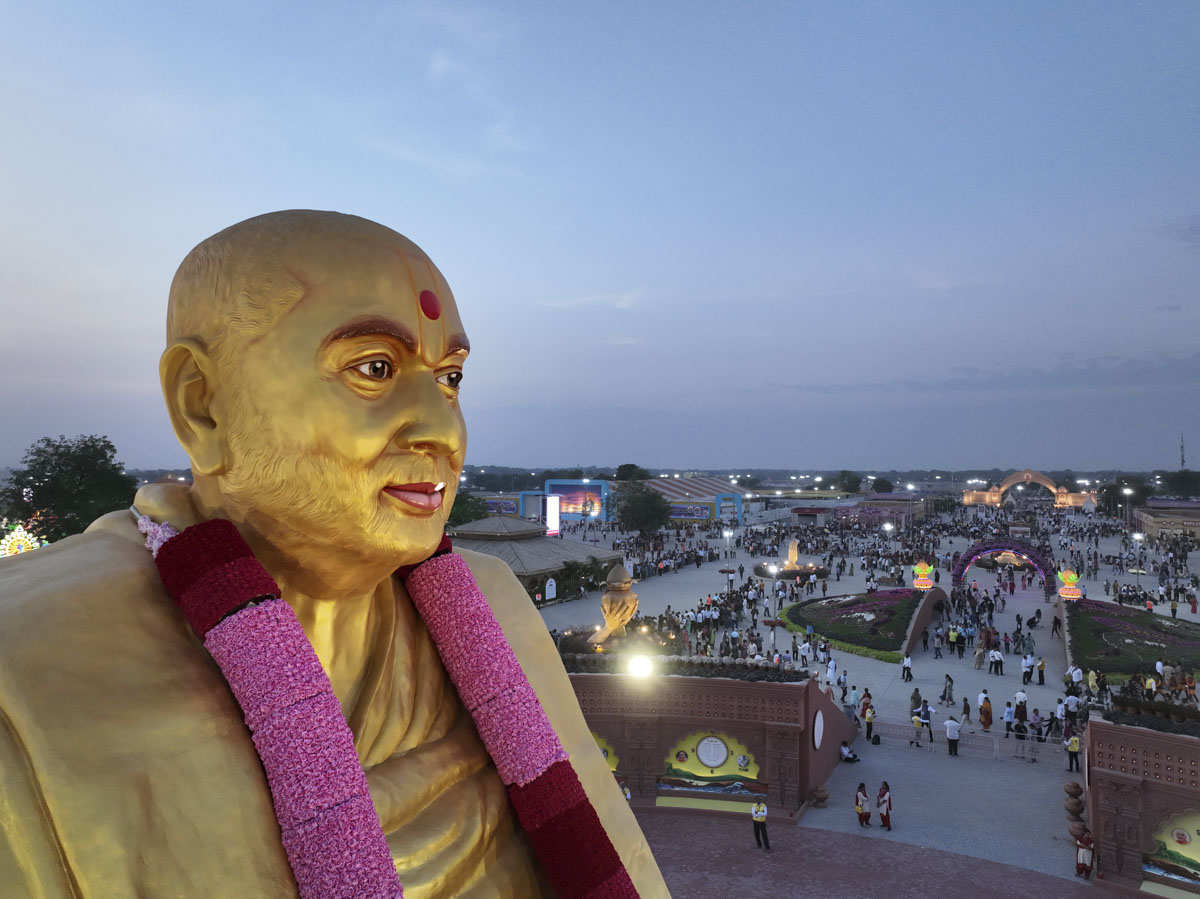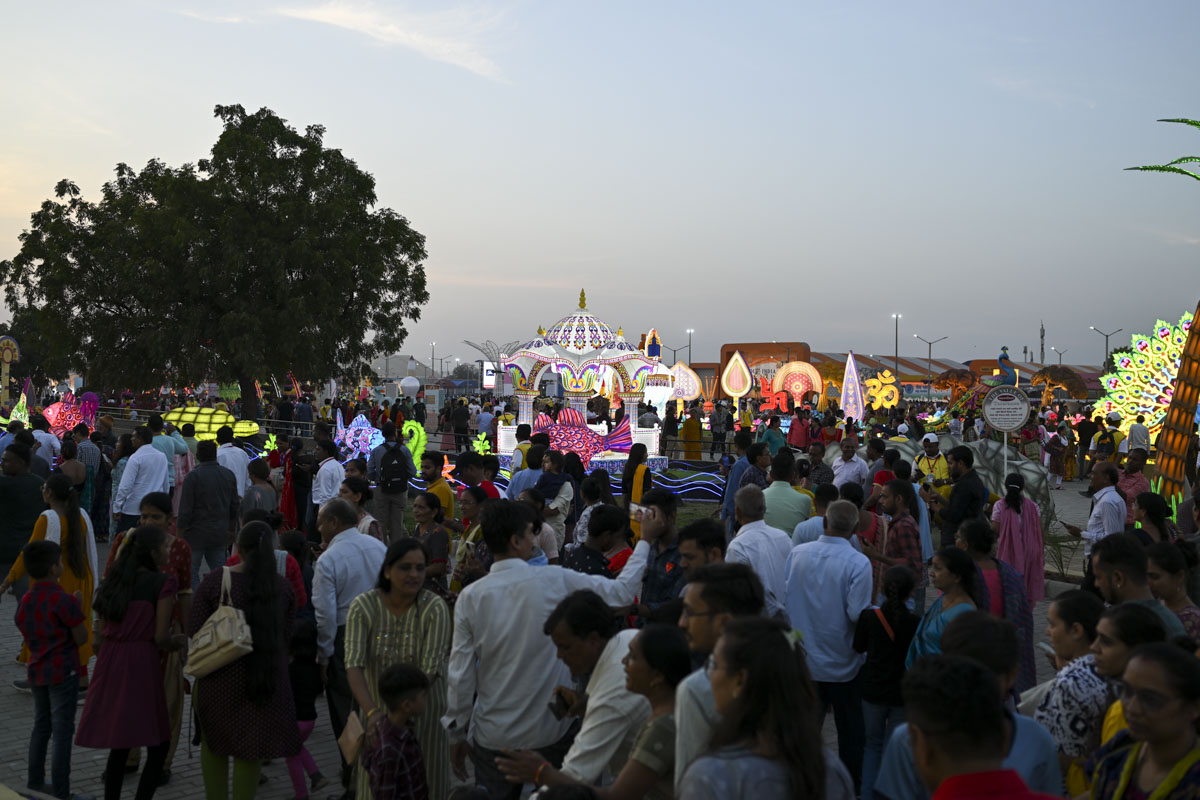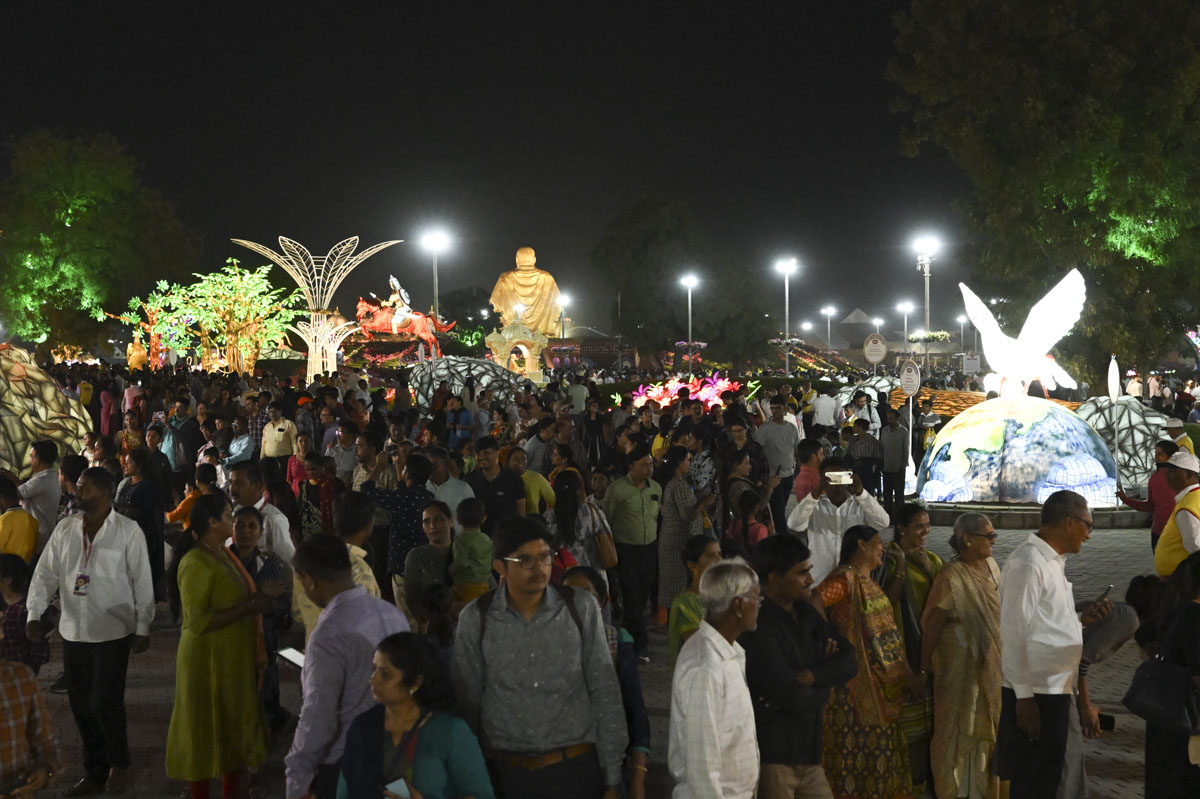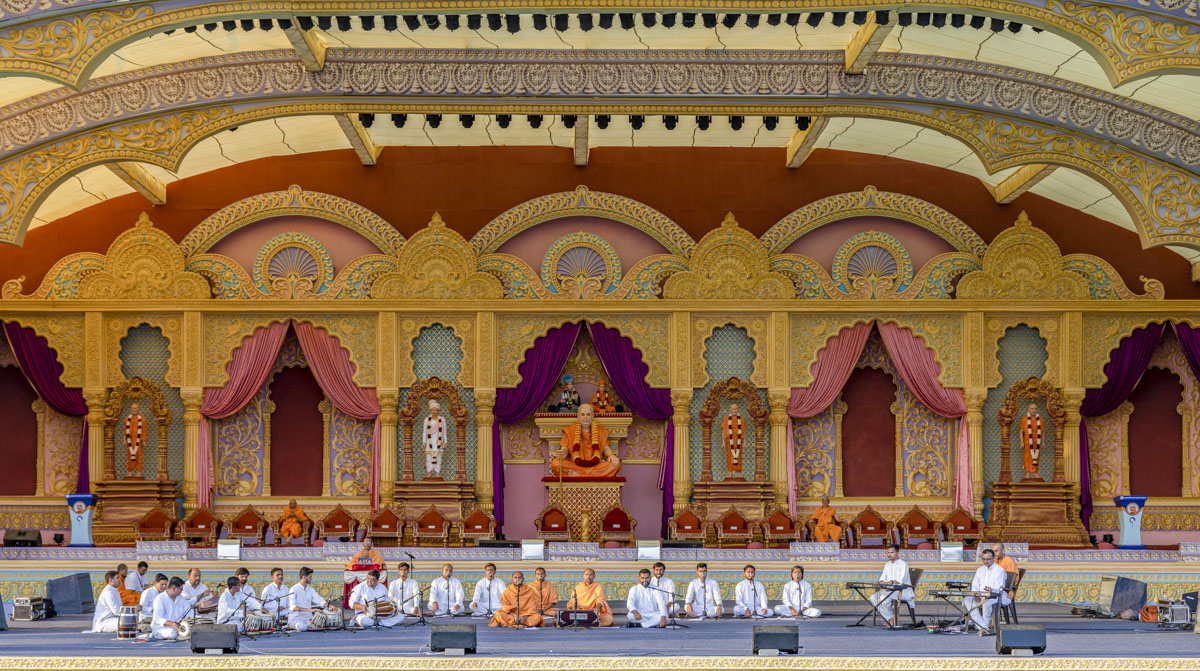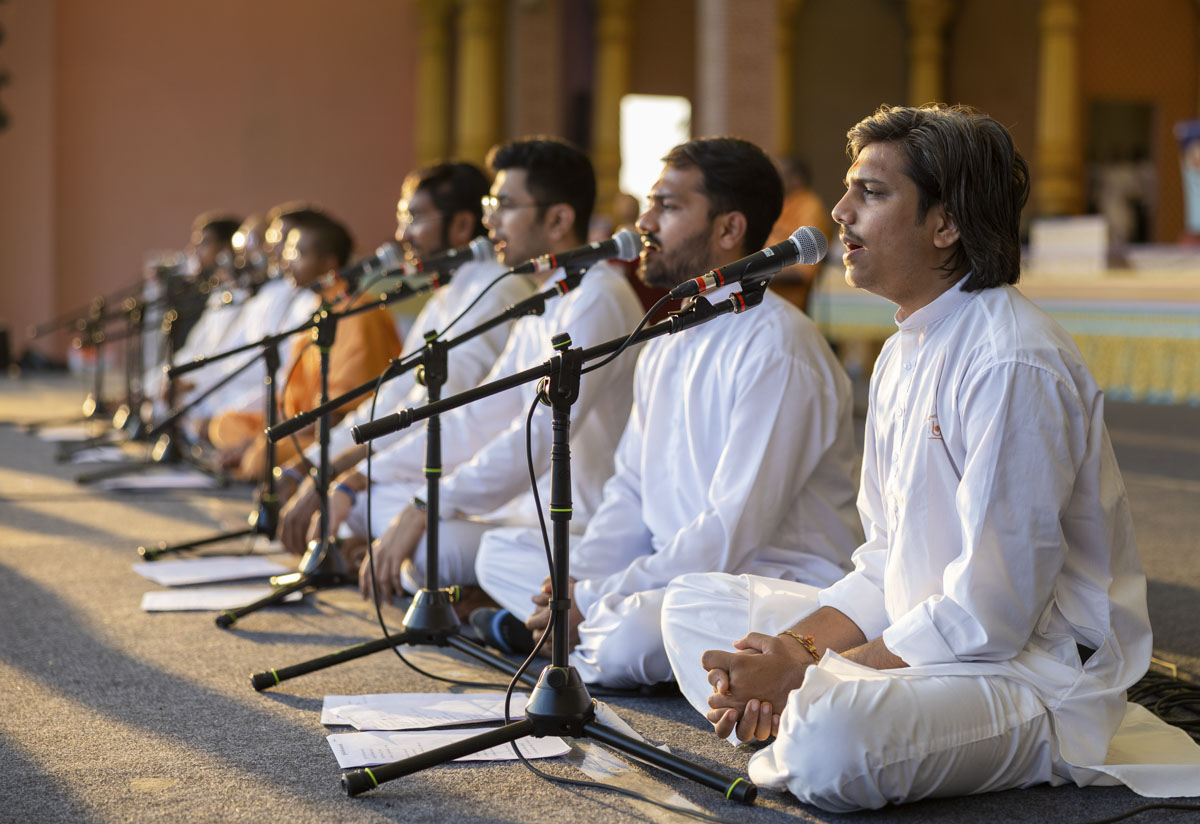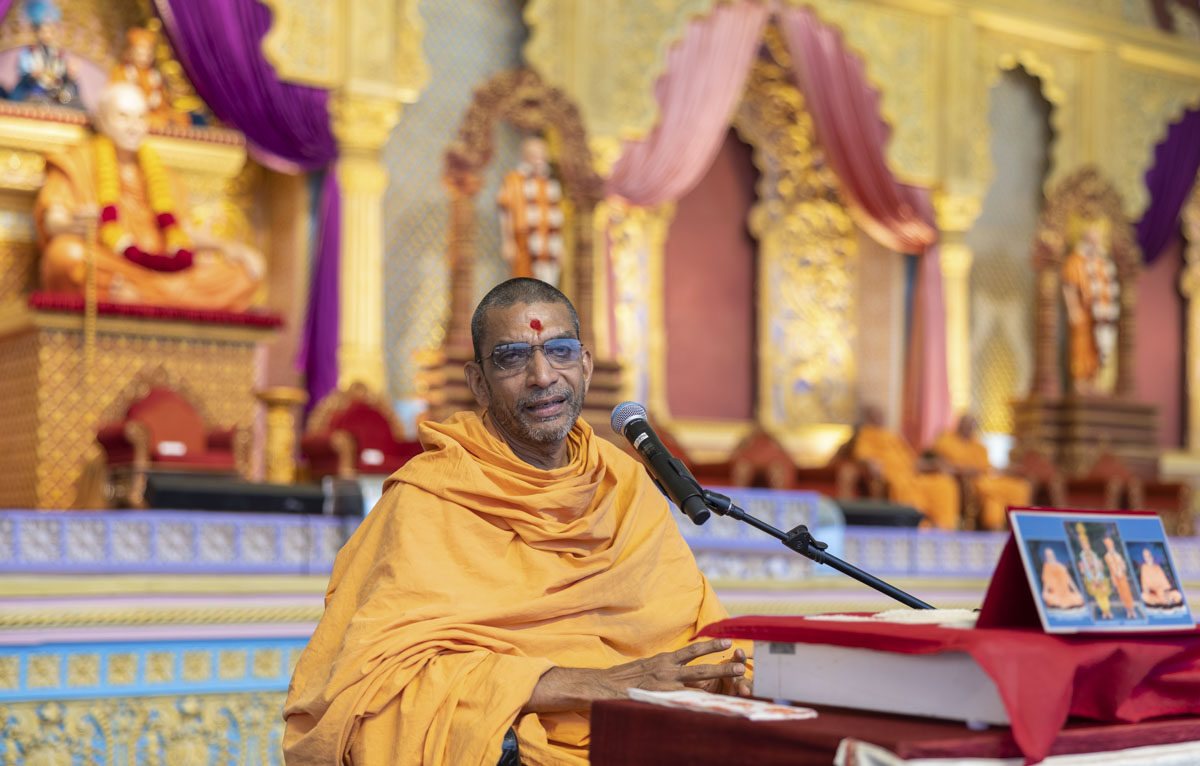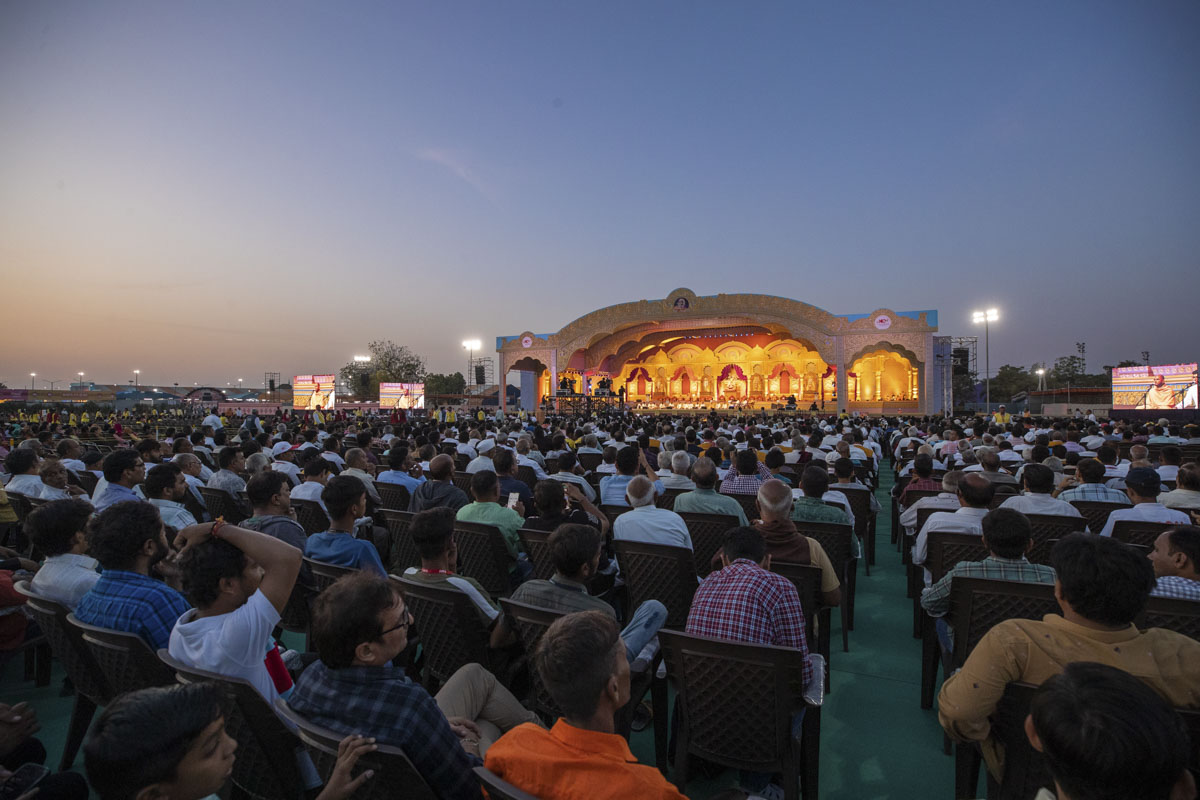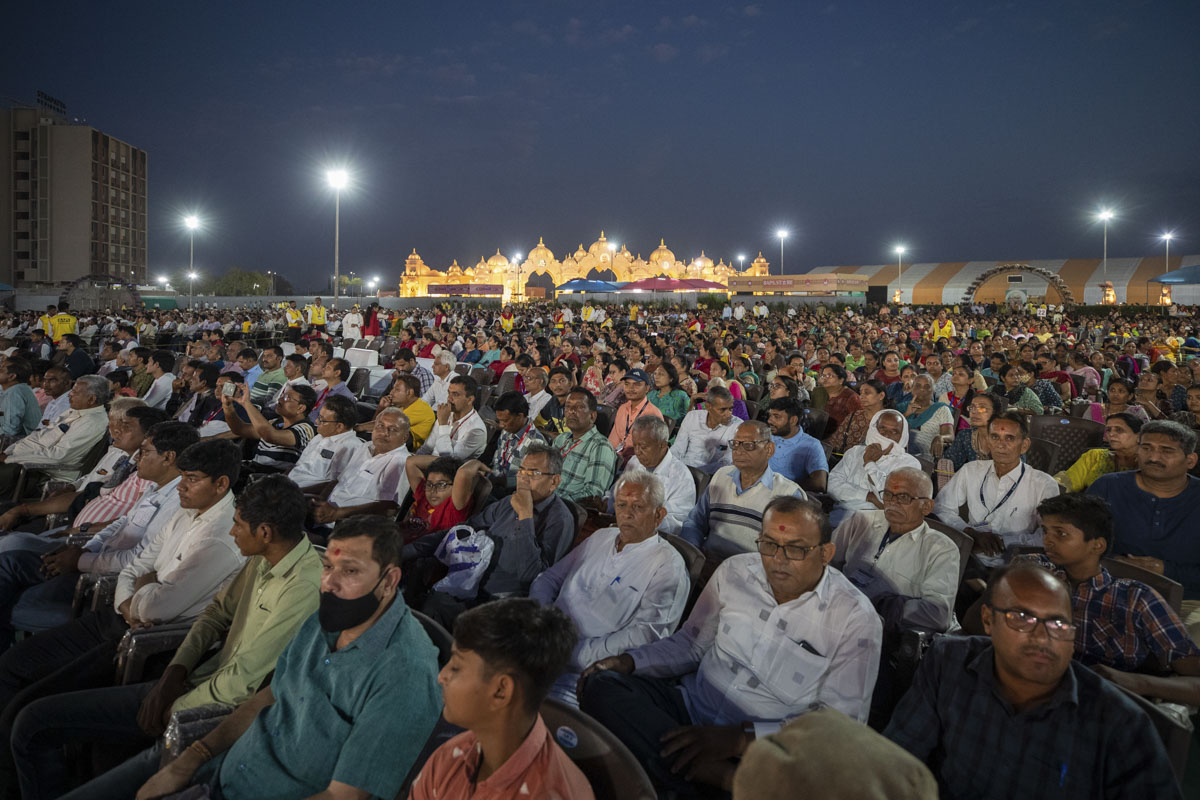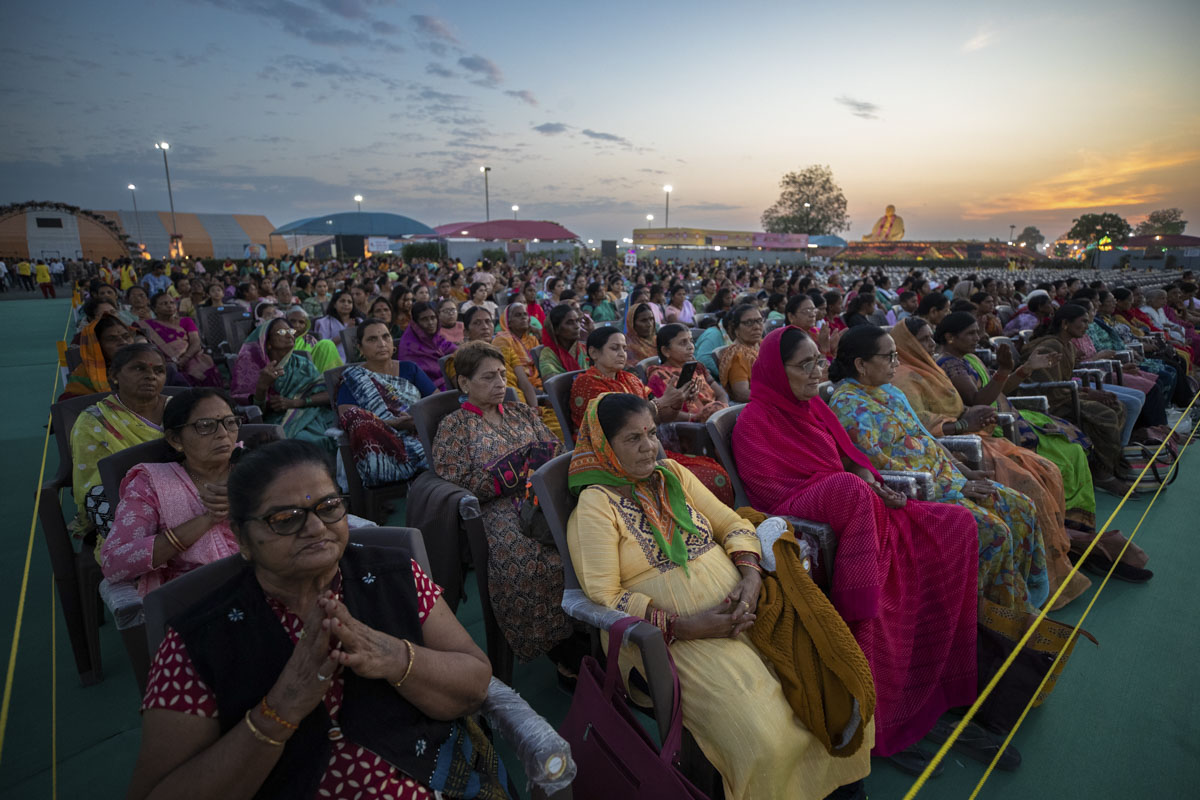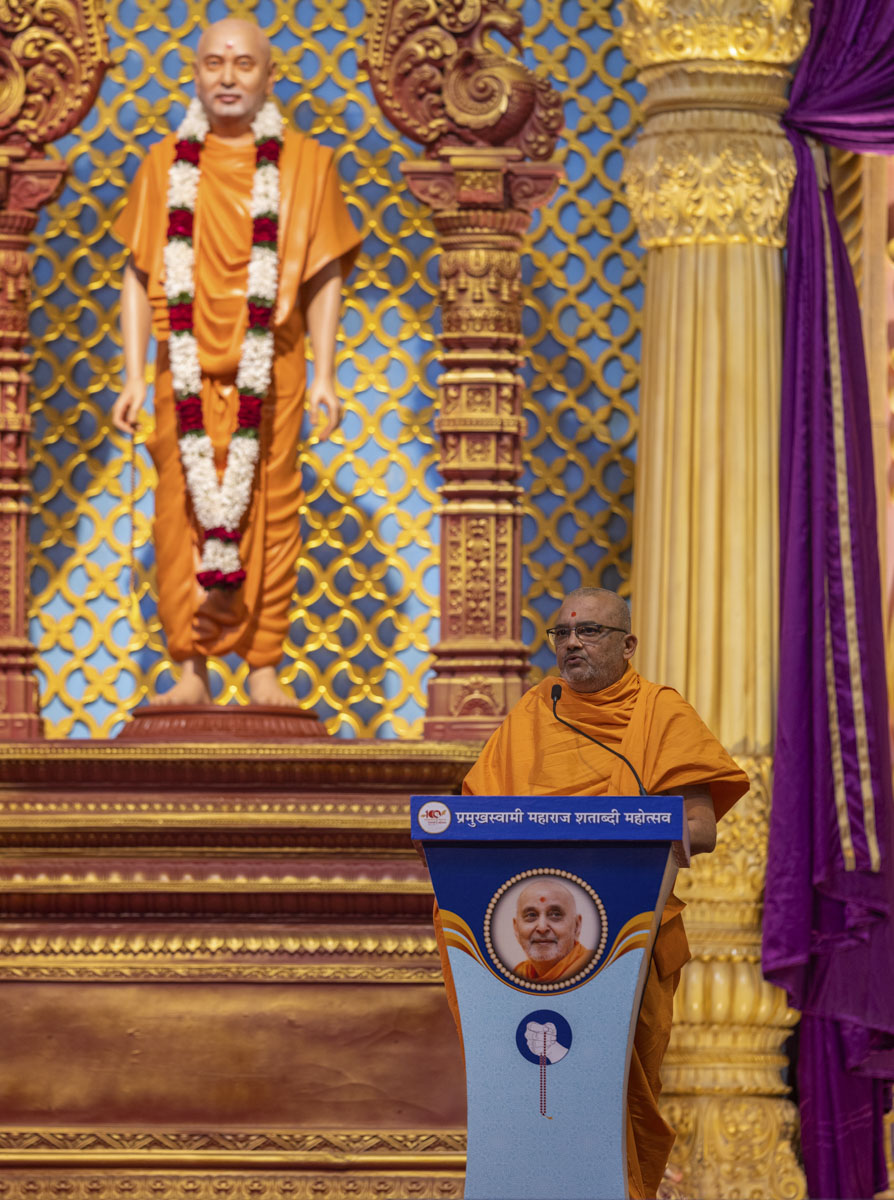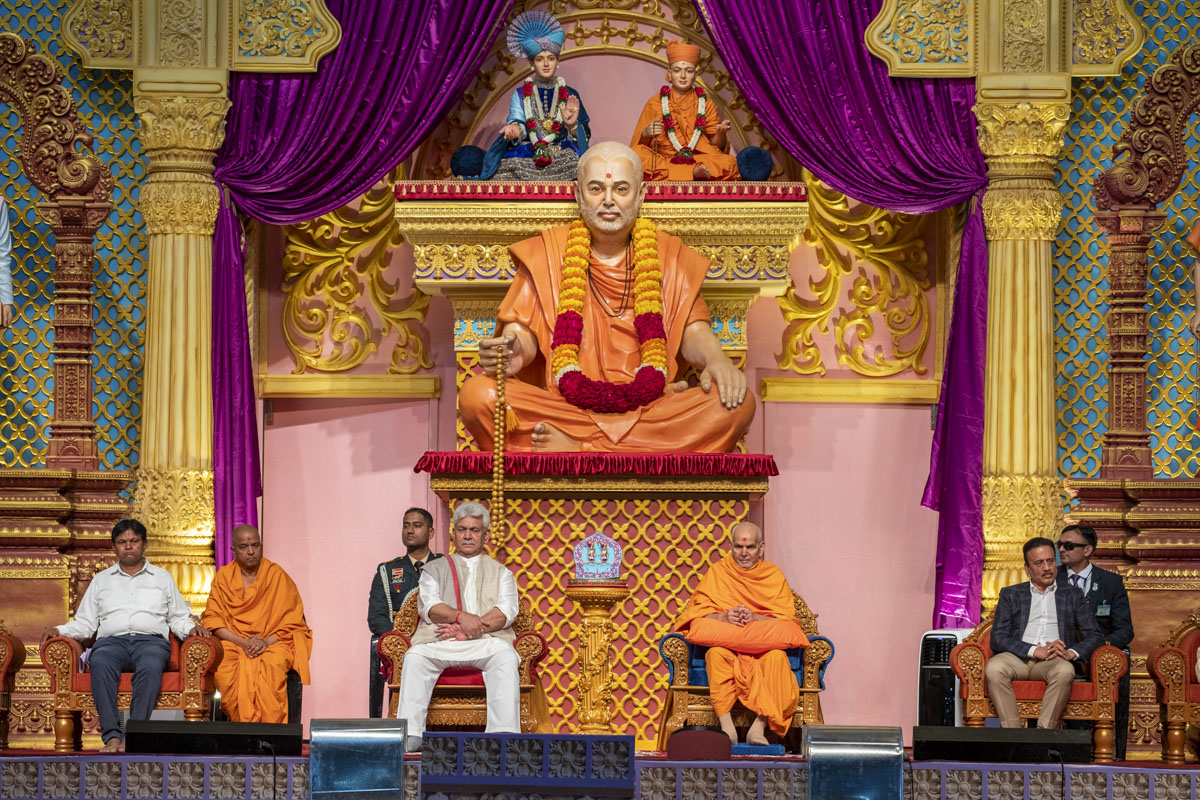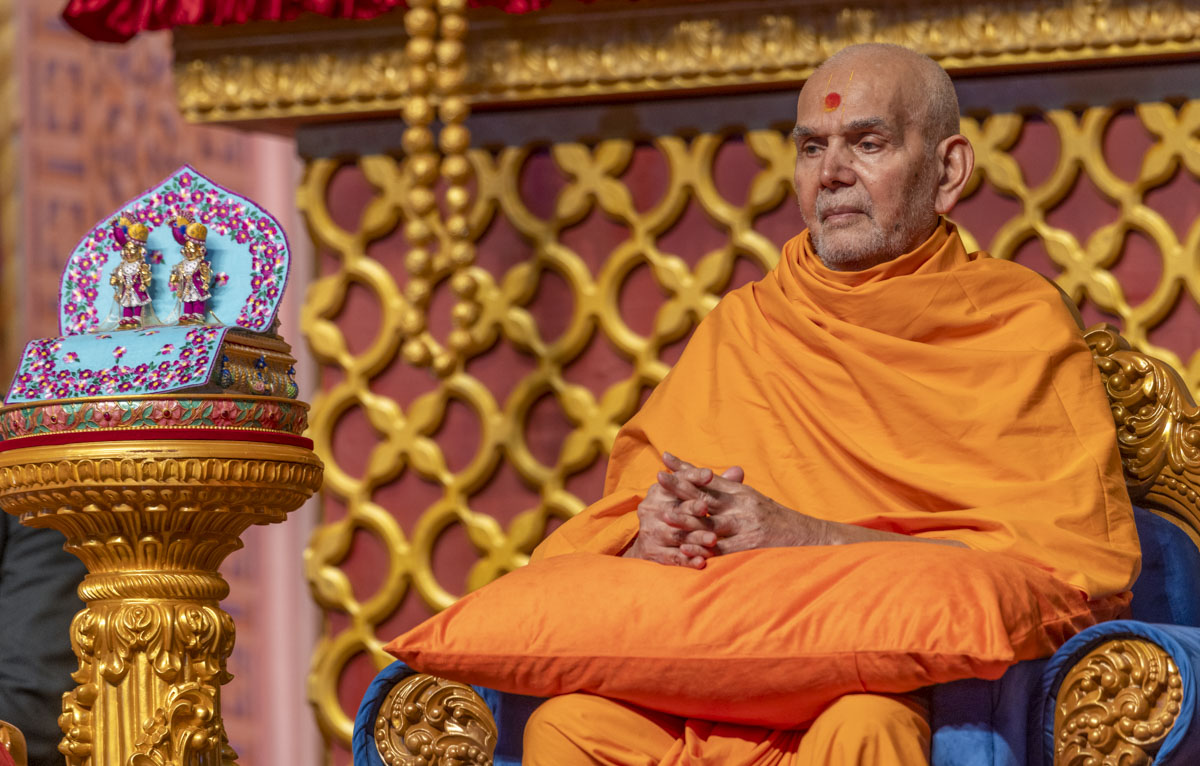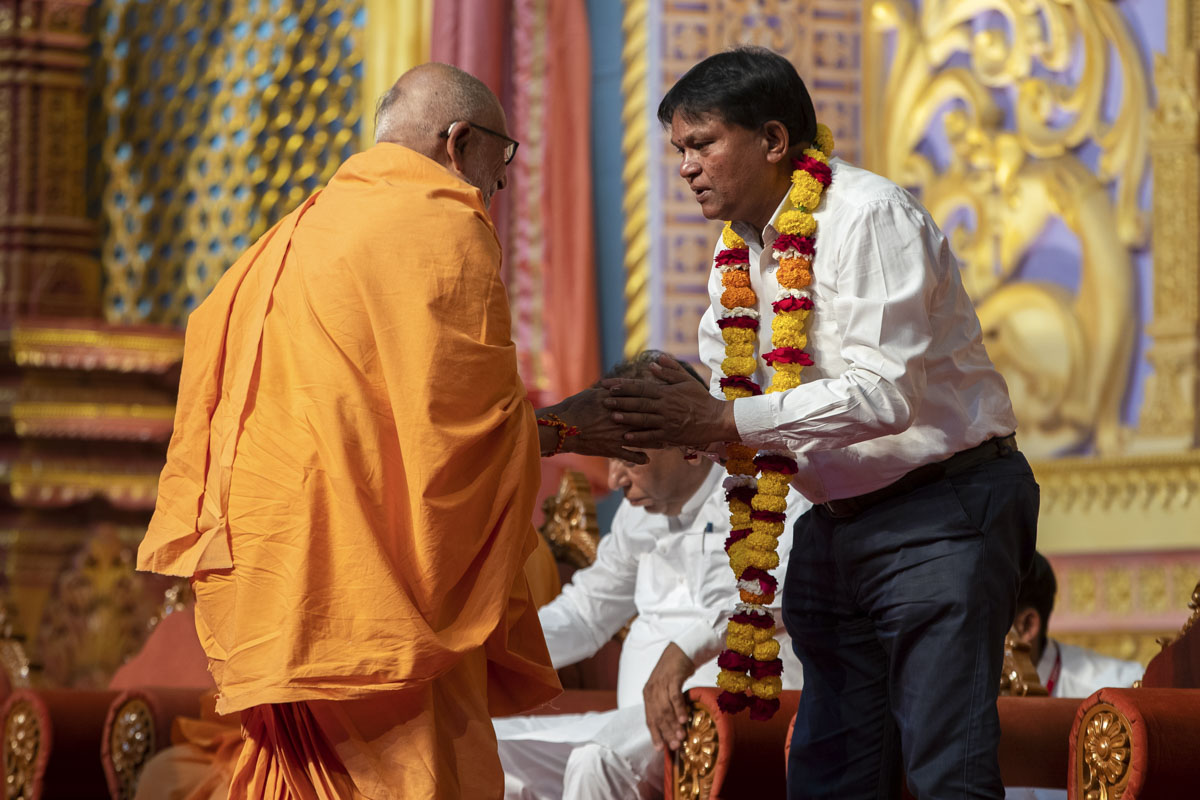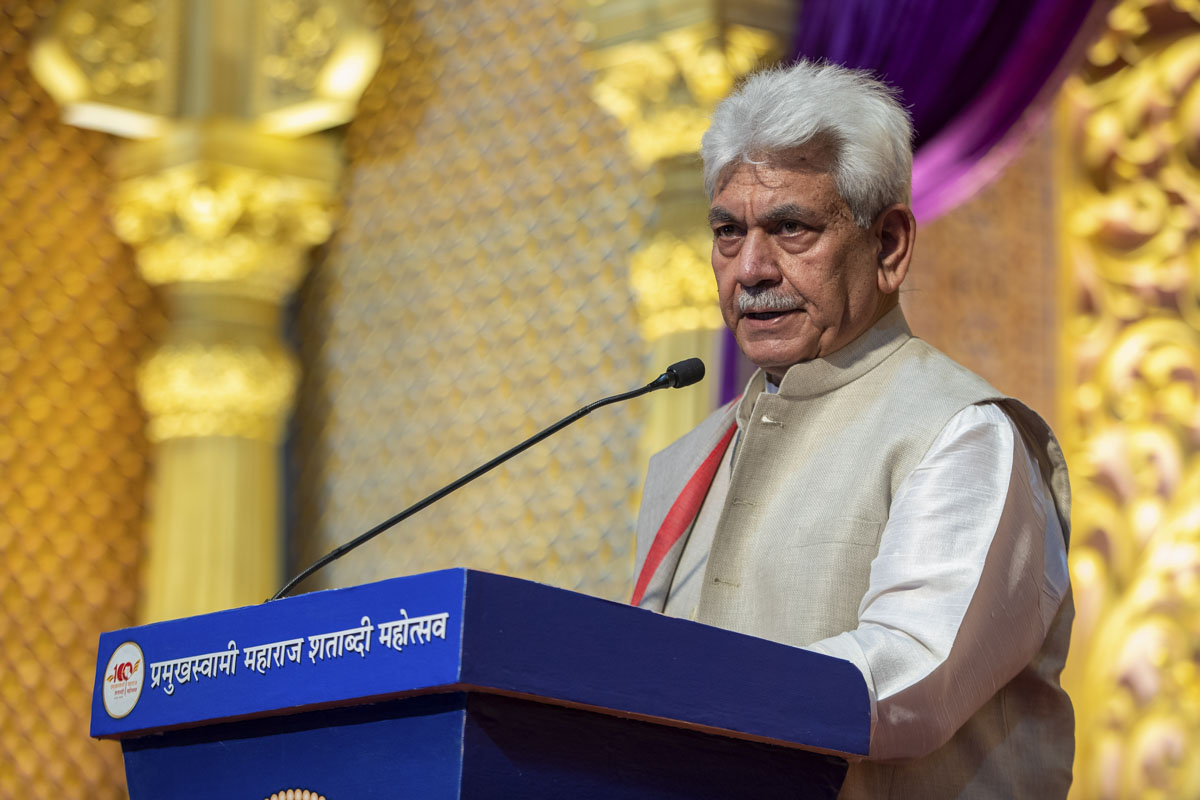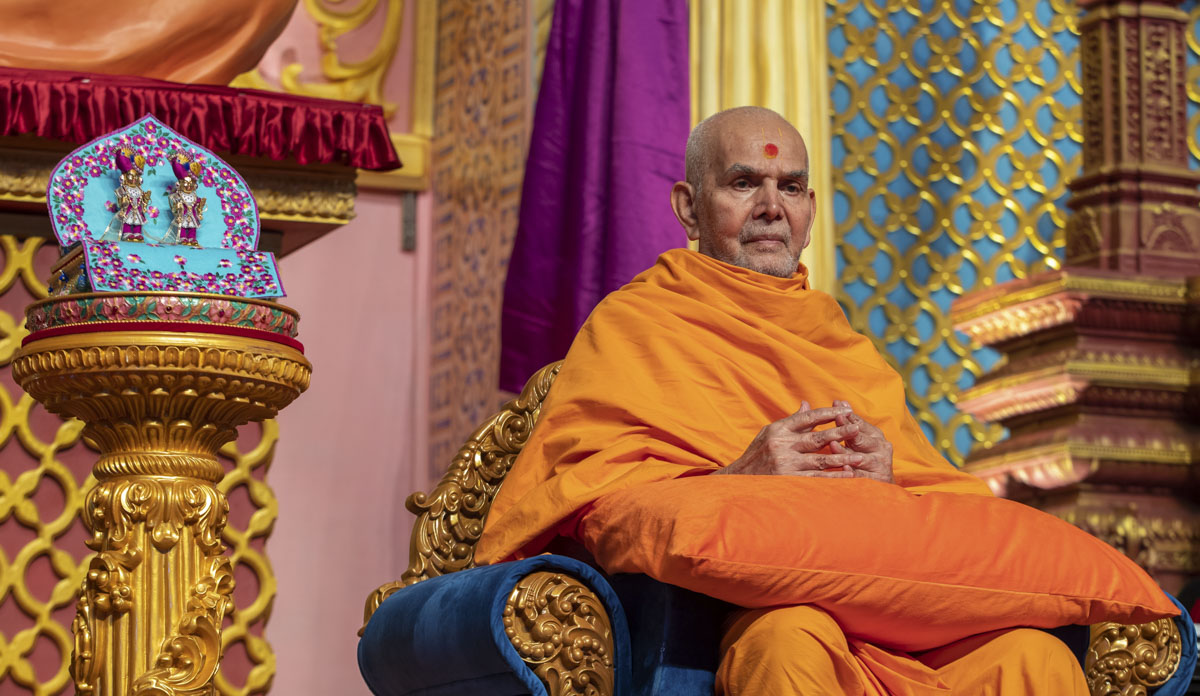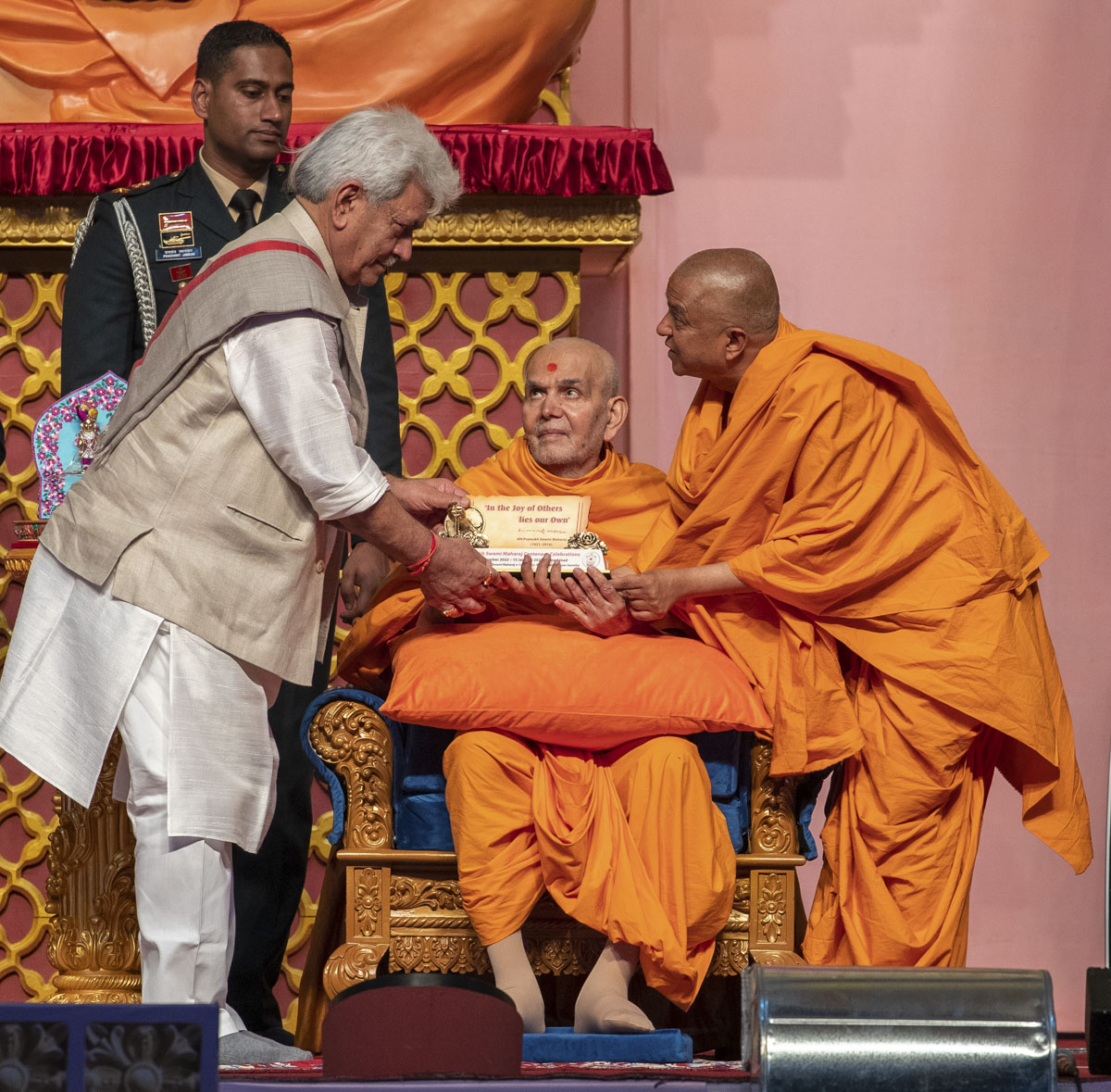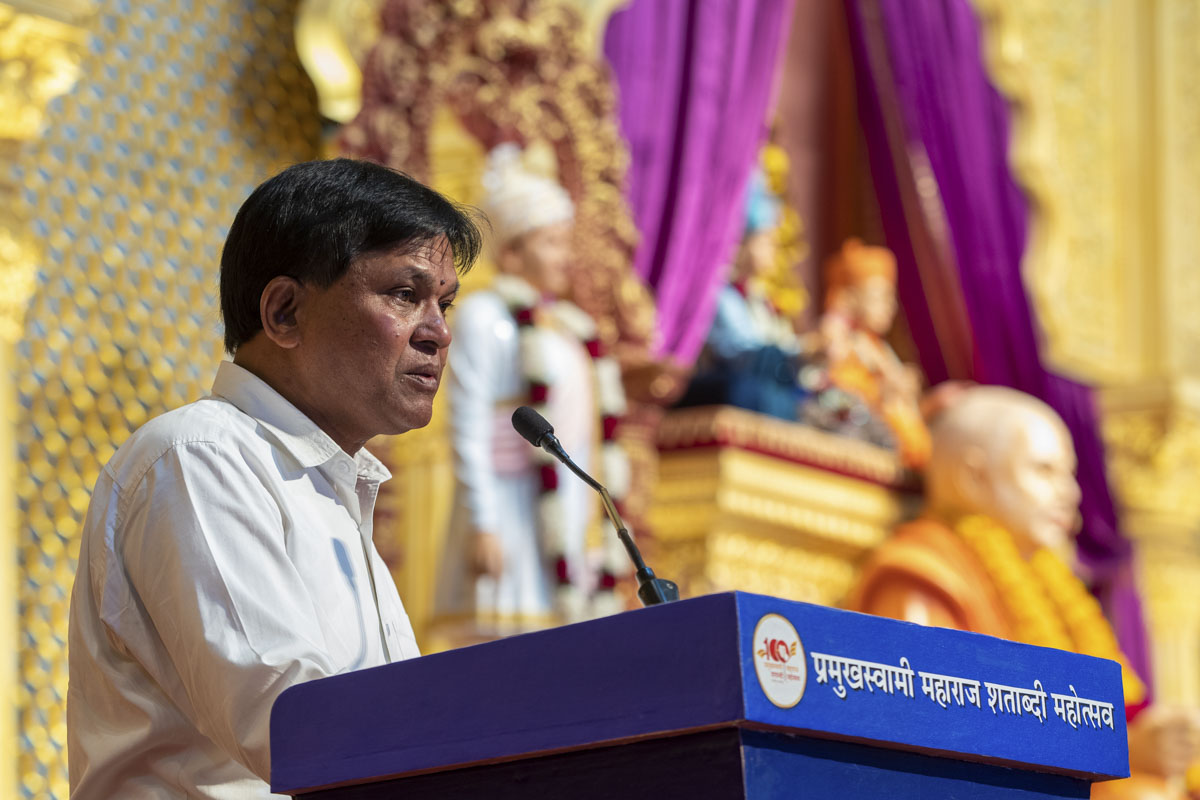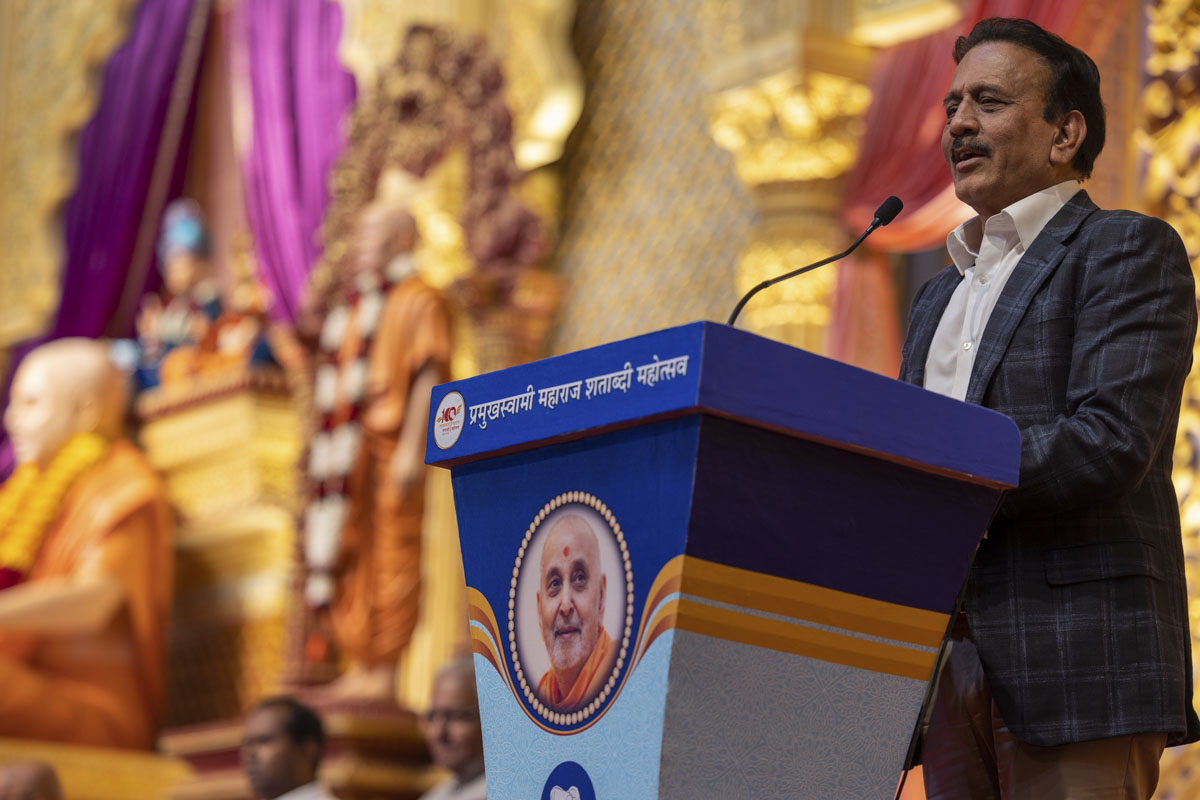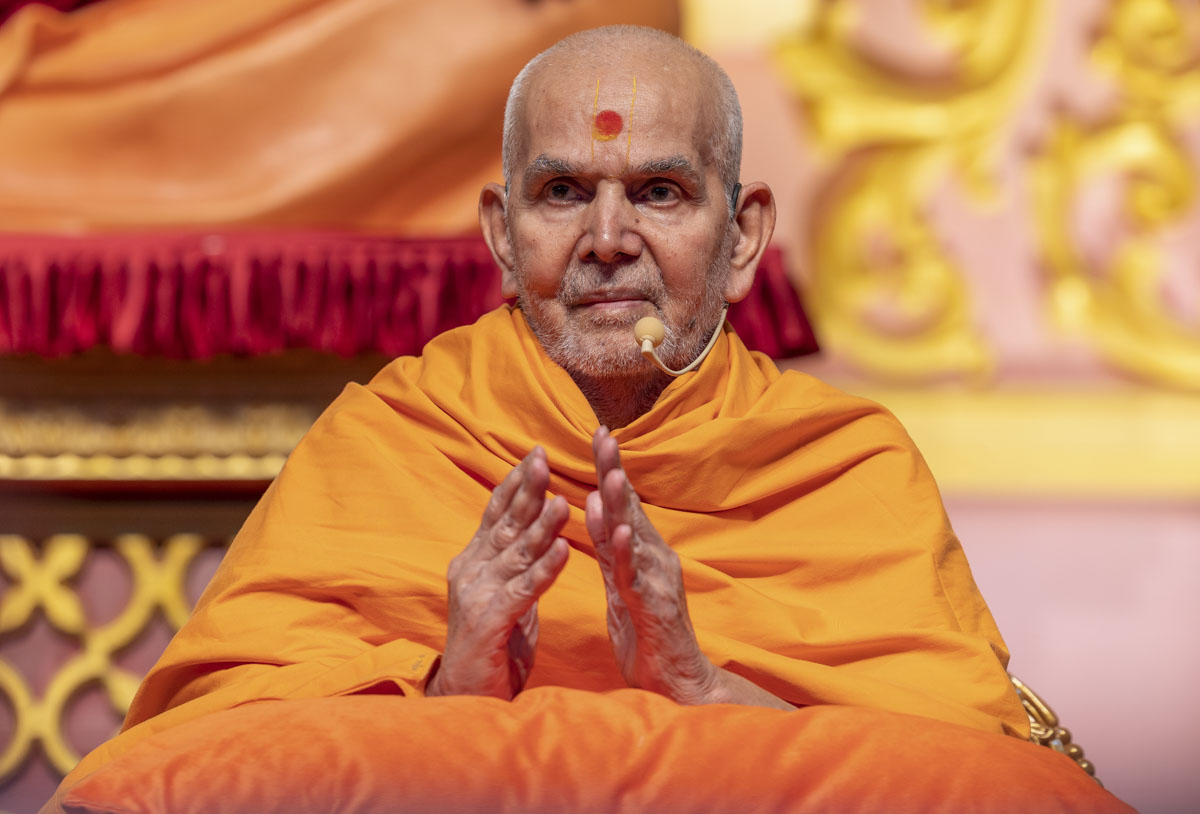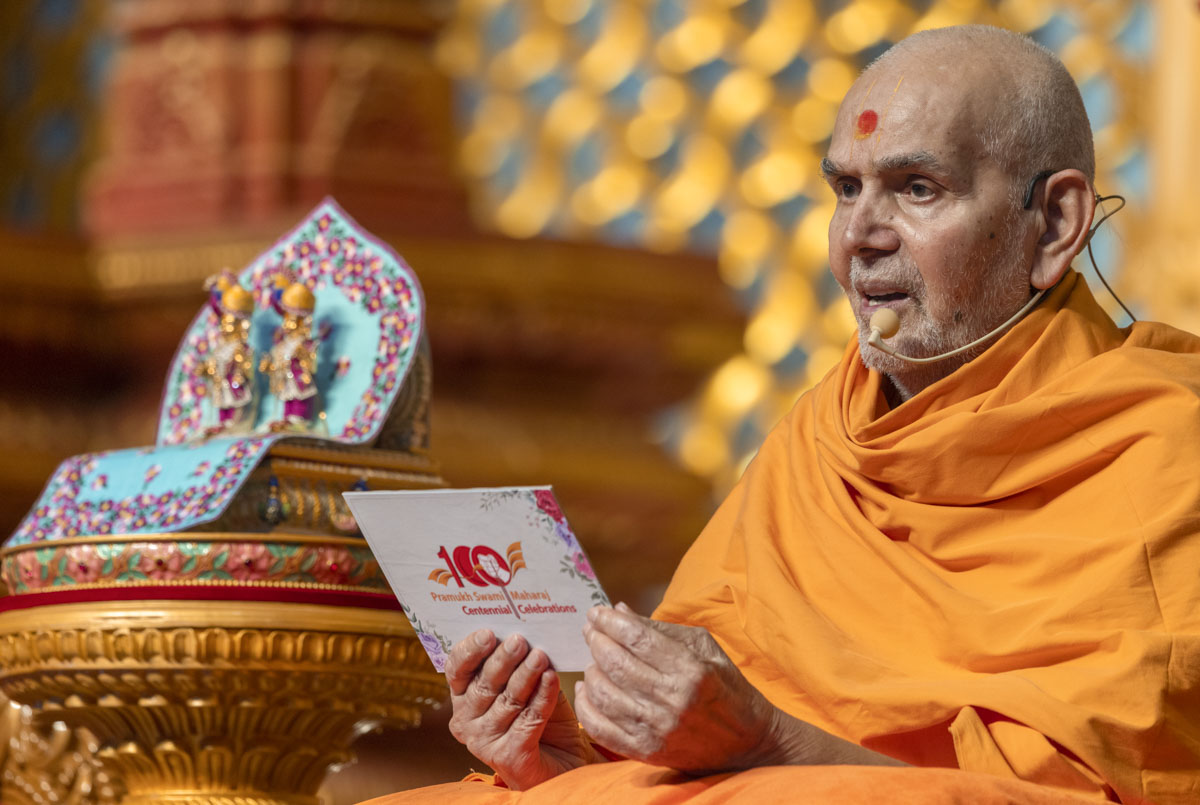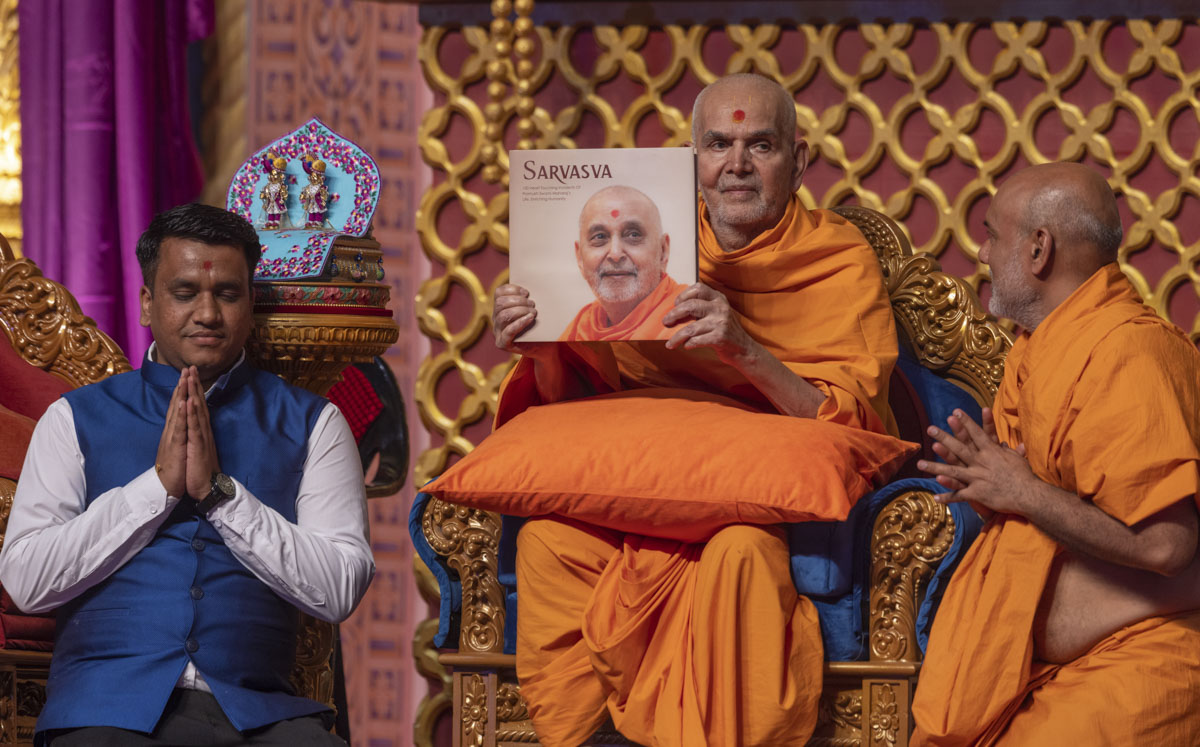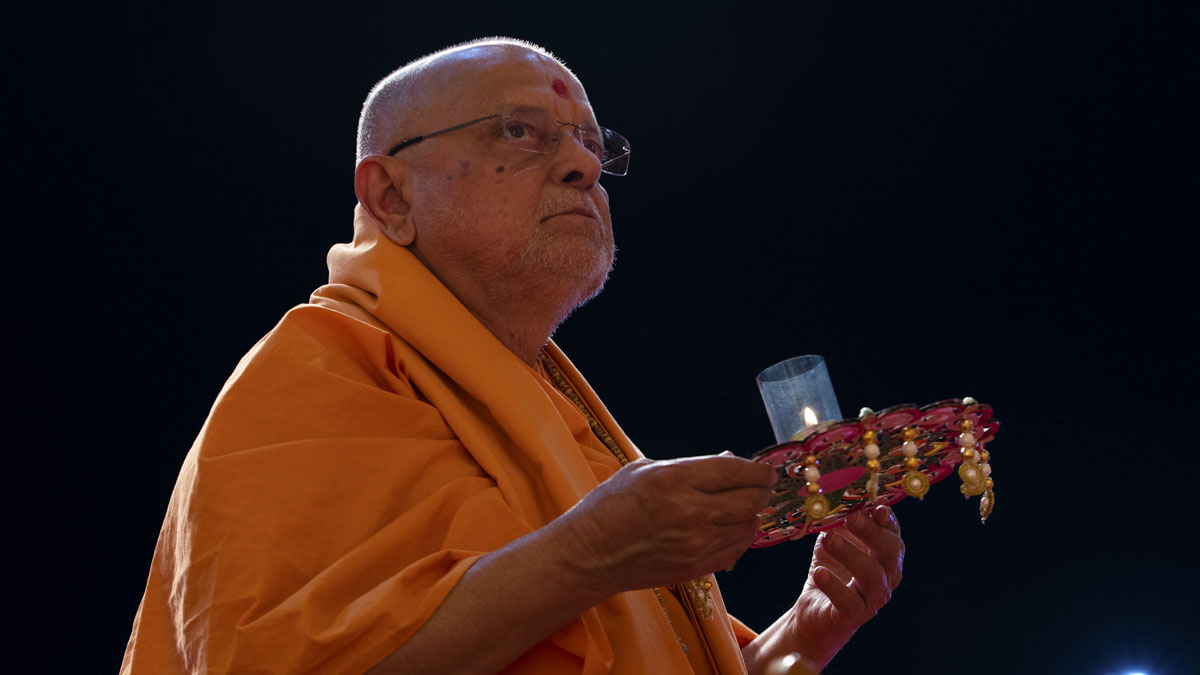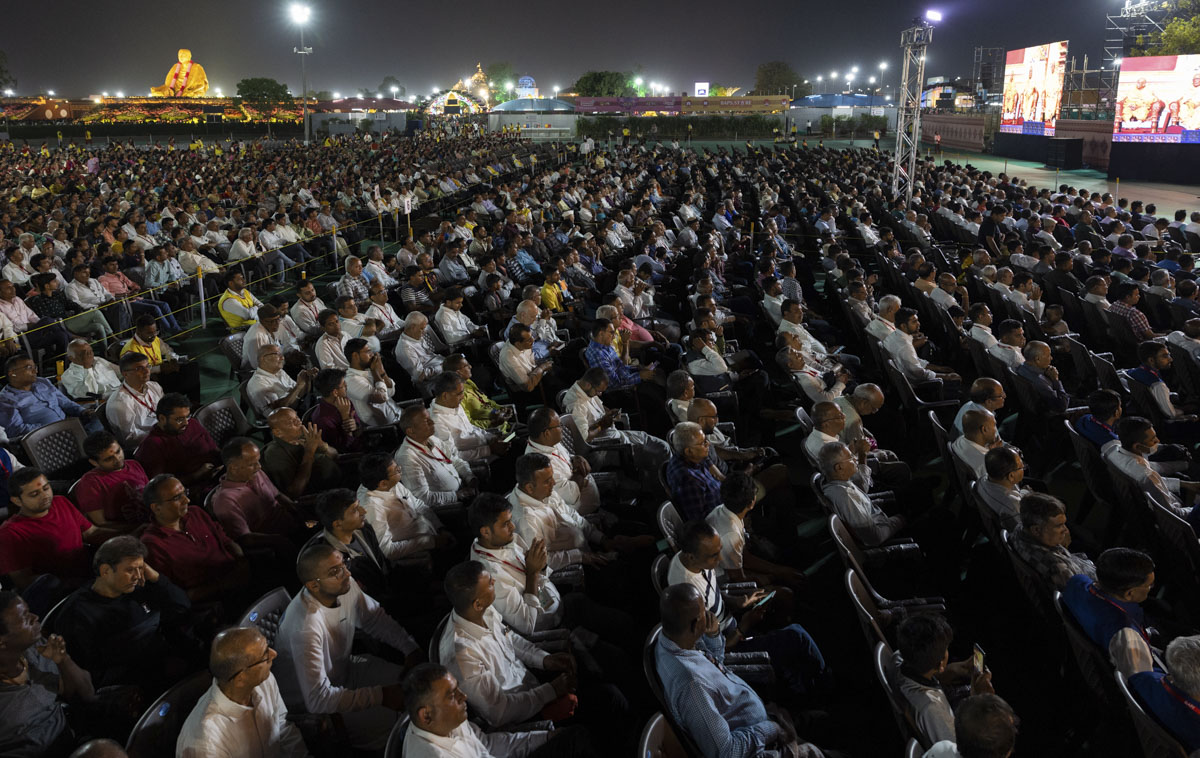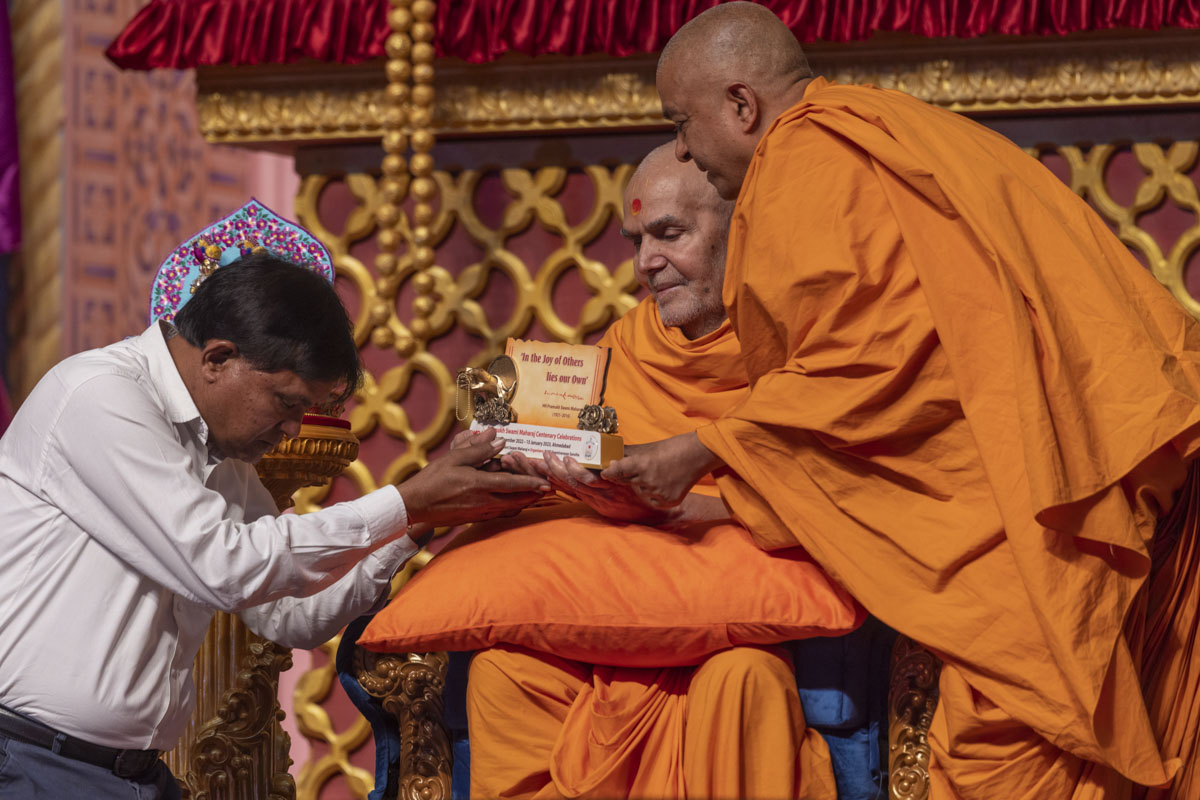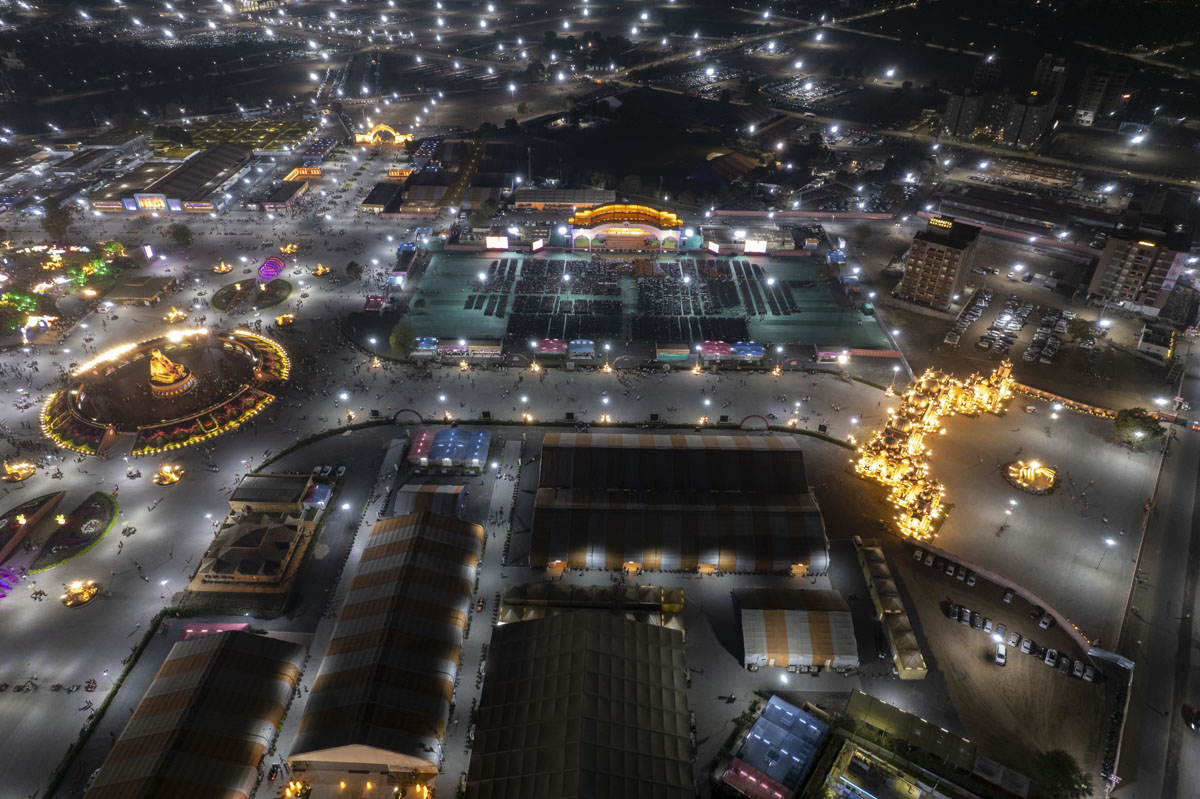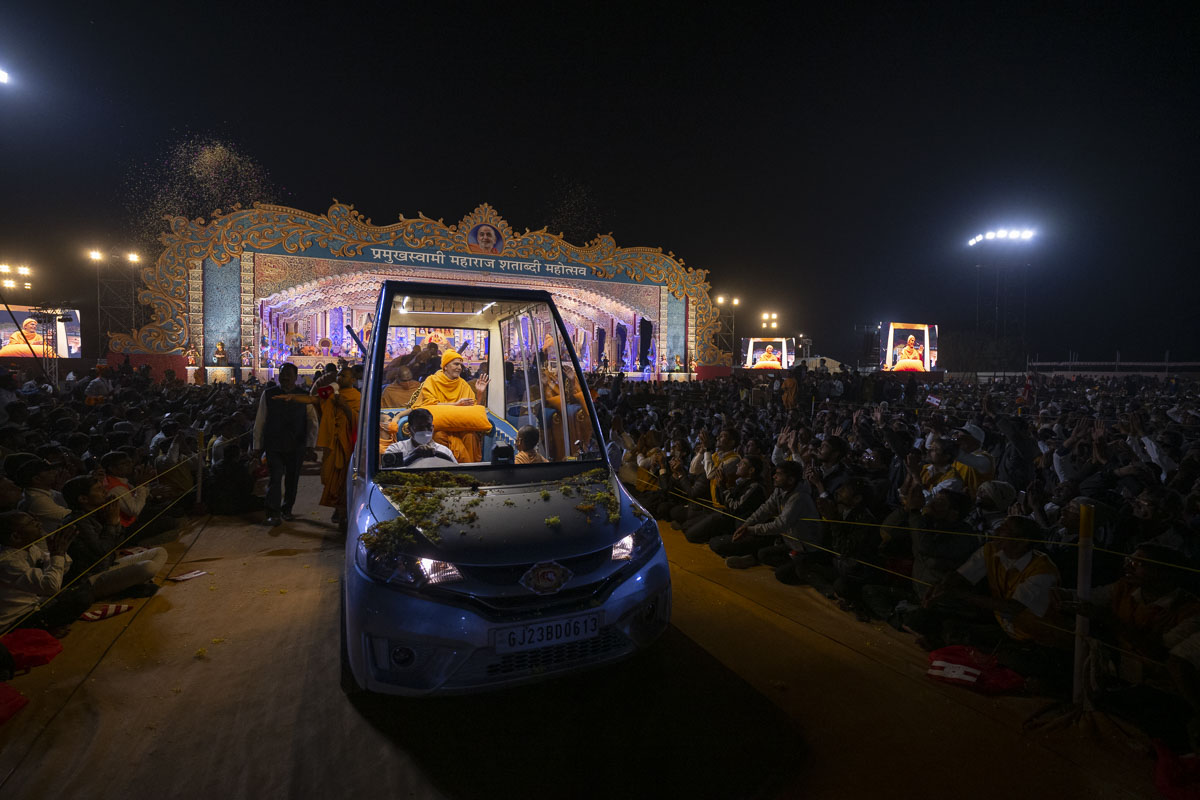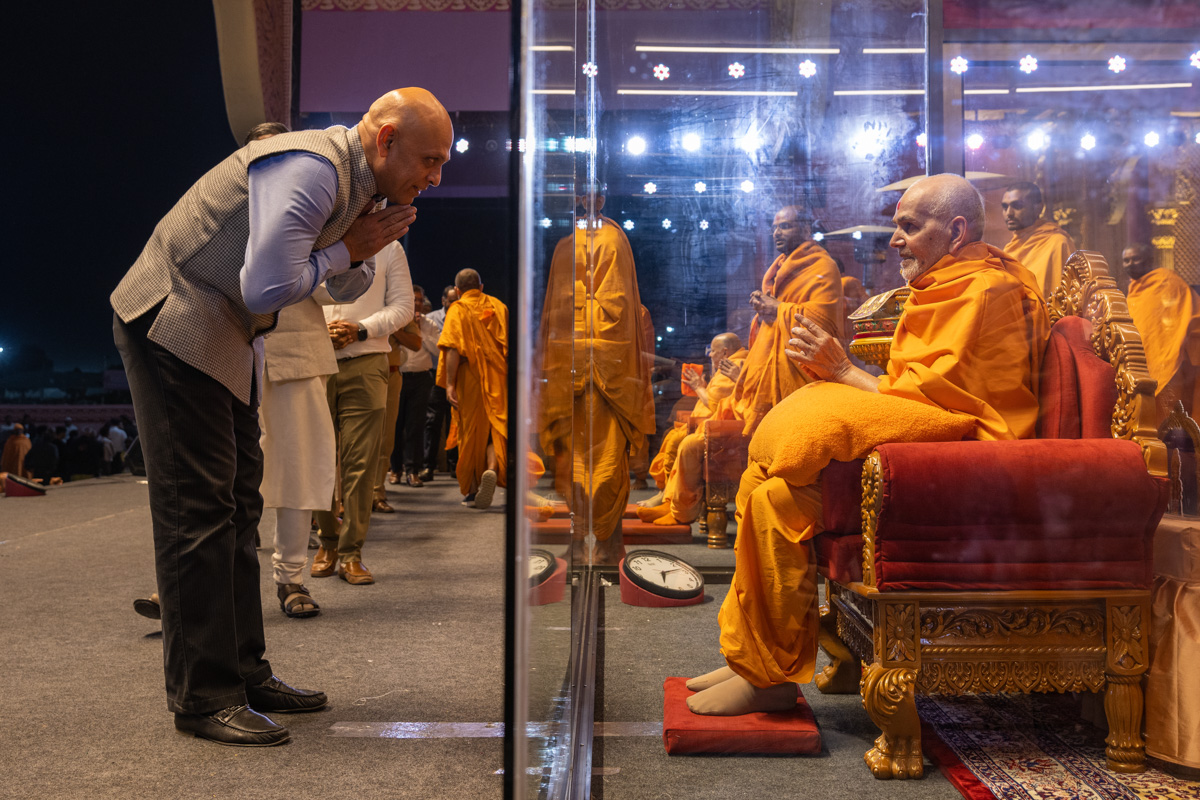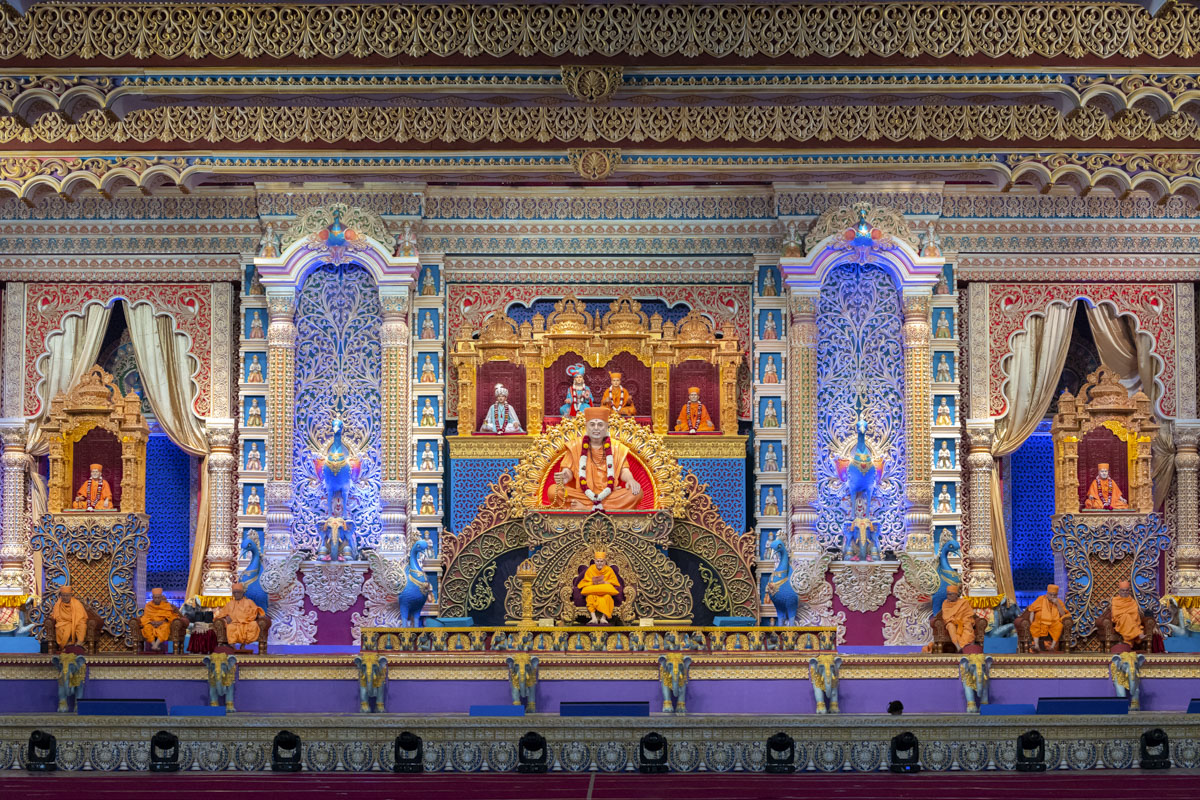Culture Day: Celebrating Indian Culture
16 Dec. 2022, Friday, Ahmedabad, India
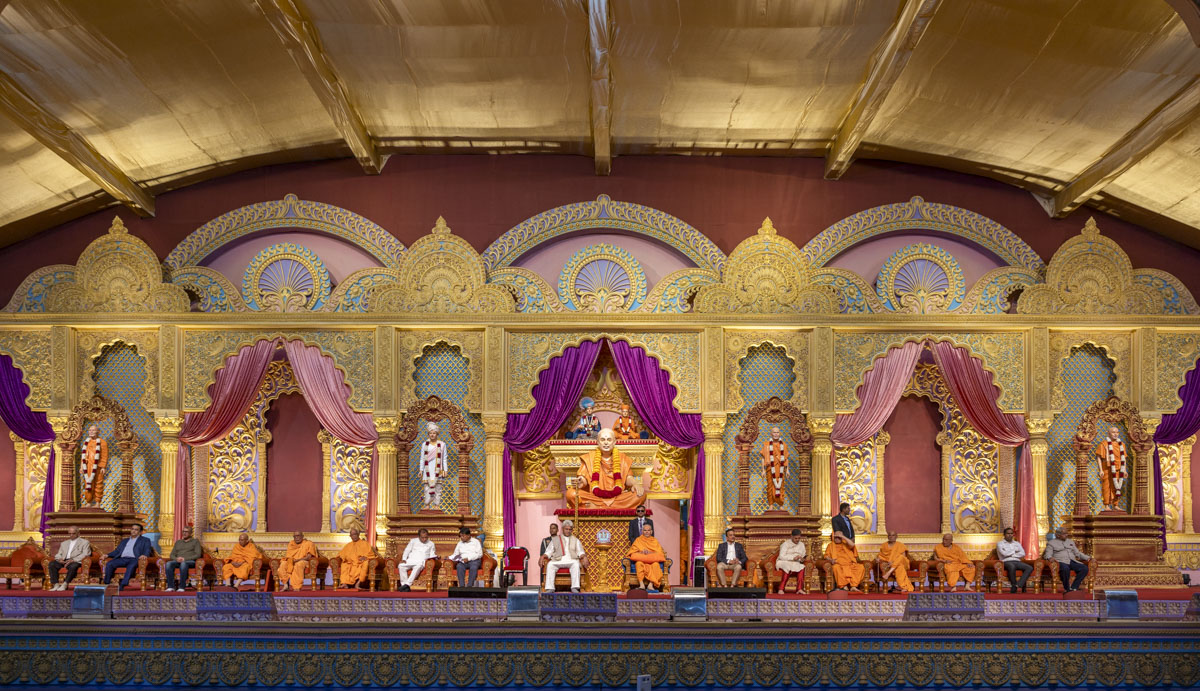
Pramukh Swami Maharaj, a modern-day torchbearer of Sanatan Hindu Dharma, was paid a grand tribute on “Culture Day” which took place on December 16th. Dignitaries honoured the invaluable contribution of Pramukh Swami Maharaj to Indian culture—his simultaneous nourishing of national pride and universal values.
Several political, social and industrial leaders joined the evening assembly to pay their tribute to Pramukh Swami Maharaj. The evening programme included an address by Pujya Adarshjivandas Swami, a learned swami of BAPS and the author of the extensive biography of His Holiness Pramukh Swami Maharaj. He reflected on Pramukh Swami Maharaj’s crucial role in preserving and nurturing Indian culture and making it globally accessible with all the richness and diversity of its beliefs, values and spiritual traditions. In particular, he contributed scriptures, mandirs and swamis – the pillars of Indian culture.
Mahamahopadhyaya Bhadreshdas Swami, a scholarly swami of BAPS – who composed commentaries on the three foundational scriptures of Hinduism (the Shrimad Bhagavad Gita, the Upanishads, and the Brahmasutras, collectively termed Prasthanatrayi) – highlighted the universal richness of Indian culture and the unparalleled contribution of Pramukh Swami Maharaj to sustaining it around the world. He said, “Our cultural heritage has touched upon every aspect of people’s life, be it spirituality, cultural values, art, literature, and music. Spirituality is the essence of our culture. Hindu scriptures like the Gita have described the highest spiritual calibre a person can achieve. In Pramukh Swami Maharaj, one can see all these qualities of our culture in a single person.”
“Our culture is generous as it is one of inclusive debate. The inauguration ceremony of Akshardham Delhi saw the presence of the President of India, the Prime Minister of India and the Leader of the Opposition on one platform. This was reported in the media, which stated that a Muslim President, a Sikh Prime Minister and a Hindu leader together inaugurated Akshardham. This inclusiveness was the hallmark of Pramukh Swami.”
Guests in attendance included:
- Kashmir Manoj Sinha, Lieutenant Governor of Jammu
- Prayasvin Patel, Chairman and Director of Elecon Company
- Bharat Joshi, Security Director of the Foreign and Commonwealth Office
- Thakor Saheb of Limbdi
- Shri Jaideepsinhji Chhatrasalji Sinhji, Director of Madhwani Group
- Shrai Madhwani, Mayor of Ahmedabad Municipal Corporation
- Kiritkumar Parmar, Chairman of Ahmedabad Municipal Corporation
- Hitesh Barot
- Girish Dattatreya
- Charles Patel, Leading British entrepreneur
Bharat Joshi, Director Secretary of the British Foreign and Commonwealth Office, said, “Pramukh Swami Maharaj was someone who cared deeply about all individuals…My abiding memory of Pramukh Swami Maharaj was in 2002 after the appalling attack on Akshardham in Gandhinagar. Pramukh Swami Maharaj could have reacted in so many different ways, but he proved to everyone that love, understanding and forgiveness were more powerful than guns and hand grenades. His words and actions averted a much greater calamity and much more bloodshed, and reminded us all that we can resist giving into our own anger…Those values run through BAPS and are what makes it such a force for universal good when the world faces so many different dangers.”
Lieutenant Governor of Jammu, Kashmir Manoj Sinha said, “Pramukh Swami Maharaj’s entire life was dedicated to the betterment of humanity…Through his efforts of the upliftment of the poor, empowering women, education, medical hospitals and camps, and de-addiction of over 4 million people, he has reignited culture in society…He taught all of humanity that we should focus our energies on unity and growth.”
In his blessings to the audience, His Holiness Mahant Swami Maharaj stated, “Our culture stands on three pillars. One is mandirs. Pramukh Swami Maharaj has created 1,100 mandirs. Mandirs purify people’s lives. They bring peace to individuals and society…The purpose of creating mandirs is so that we do not forget our culture and values. Hindu scriptures are a second pillar on which our culture stands. Abiding by the injunctions of the scriptures brings peace, purity and happiness to our lives. Third, just as one needs a teacher to acquire knowledge…to understand our culture, one needs a sant, who is the third pillar of our culture. Thus, mandirs, scriptures and saints are our life…In this way, we must preserve and protect our culture and religion…Faith in the guru can transform our entire life. It will give us peace and God’s grace.”

